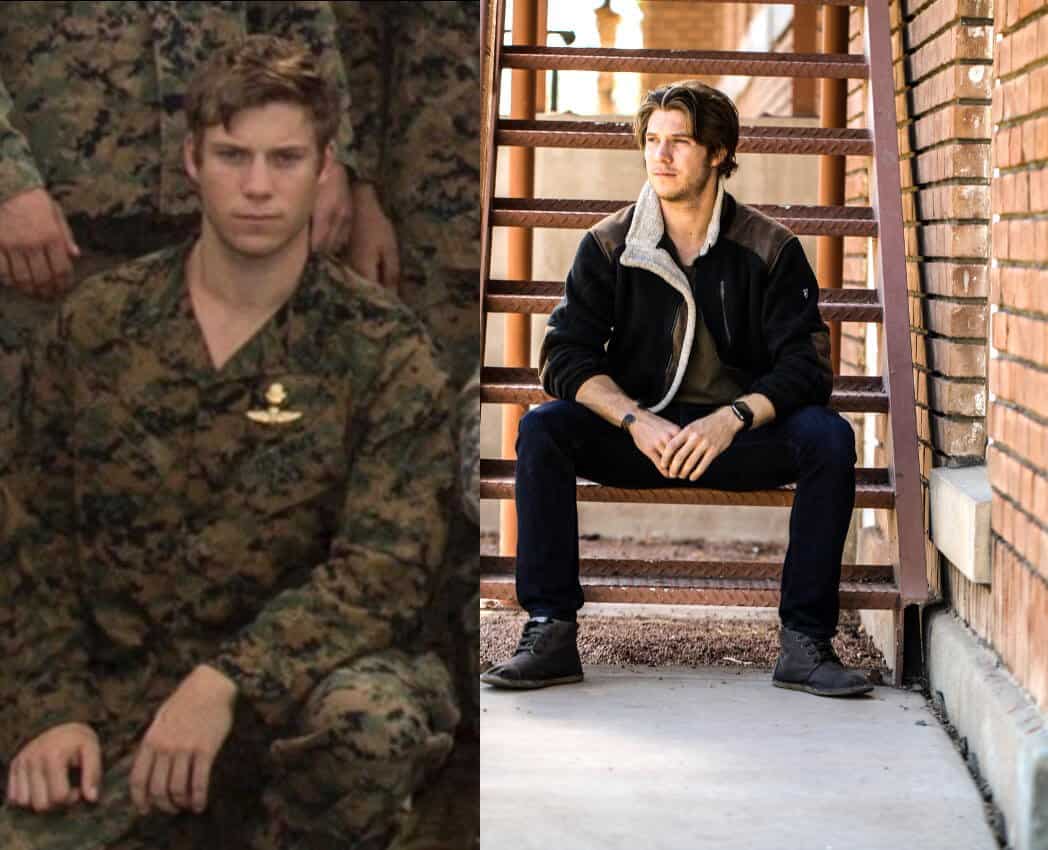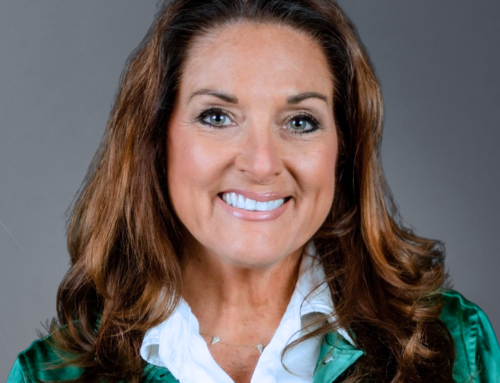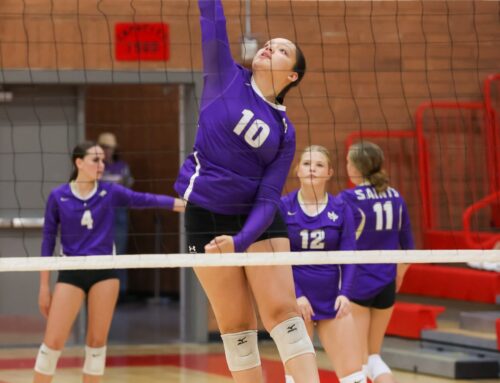Notre Dame Preparatory High School, 2011
Saint Thomas the Apostle Catholic School, 2007
Growing up in an Irish Catholic family, receiving a Catholic education was seemingly an unspoken truth. My Grandparents and their eight children relocated to Arizona from Long Island, NY and enrolled their children at Saint Francis Xavier Elementary where they proceeded to attend high school respectively at Brophy, Xavier, and Bourgade. My Grandfather, Owen Sr., served three years in the Marine Corps during the Korean War era. Afterwards, he dreamed of attending Notre Dame University, but ended up attending Hofstra University, playing football and baseball for the school before receiving a degree in education. He spent his entire professional career working for the Diocese of Phoenix, and through his work ethic and driven personality, placed an emphasis to his children on the importance of Catholic education, despite the cost.
Growing up, my family moved a lot, I think around 10 times before I graduated from Notre Dame Preparatory High School. I was around 6 years old when my family moved from Golden, CO to my mother’s adopted home state of Arizona, where my older sister went on to attend the University of Arizona, while myself and our younger sister went on to attend our first of our many years of Catholic education beginning at Saint Thomas the Apostle (STA). At first, I had a hard time fitting in, most of the kids knew each other from attending kindergarten at STA, and I suffered from a speech impediment, bad eyesight, and undiagnosed ADD. However, STA really provided me a good place to grow up, allowing me to grow out of the speech impediment, learn to focus and control my ADD, develop athleticism, and gave me a lifelong network of family-friend connections.
I was in 3rd grade when September 11th happened. I remember experiencing that level of fear, anger, and confusion for the first time. I decided then and there, that I always wanted to be the type of man that would put others in need before self. It would be a few years before I changed my childhood dream of becoming an architect to becoming a Special Operations Medic, but that was the first step. The majority of my STA graduating class of 2007 moved on to attend Brophy and Xavier; however, I found NDP more appealing with smaller classes, more athletic opportunities, and an underdog mentality, as it only opened in 2002. By the time I graduated in 2011, I made lifelong friends, played soccer, ran cross country, and won the lacrosse state championship in my senior year.
During my sophomore year, the 2008 market crashed, creating an economic hardship for my family and my parents ended in divorce. At that point, I realized I needed to mature much faster than my peers, so upon graduation from NDP, I decided rather than to become a financial burden for my already struggling family, to follow my childhood dream of joining the military, allowing my family to focus on getting my younger sister through college. I enlisted in the Navy and was off to bootcamp in the fall of 2011. I never intended to spend my Naval career on board a ship. I knew that the Navy provides the medical support to the Marine Corps, so I set off on an arduous two and a half year journey to join the elite Marine Force Reconnaissance community as a Navy Corpsman. I attended the most arduous, challenging courses that the Marine Corps has to offer. These courses have the highest attrition rate in the Marine Corps as well. I graduated from the Marine Corps equivalent to the Navy SEAL’s BUD/s, the Basic Reconnaissance Course right before I turned 21. I went onto attend Marine Combatant Dive School, Navy Dive and Hyperbaric Medicine, known as ARC, Basic Army Airborne, Special Operations Combat Medic, and Survival, Evasion, Resistance, and Escape (SERE) School. Immediately following those two and a half years of both physical and mental schooling, I received my first and last duty station orders. I traveled back across the country from Fort Bragg, NC to Camp Pendleton, CA, checking into First Reconnaissance Battalion. This is the same unit of notoriety from the book and HBO mini series “Generation Kill.” Once checked in, I immediately began an eight month workup for deployment with my company where we were taught by the Special Operations Training Group (SOTG) close quarters tactics (CQT), Urban and Green-side reconnaissance and surveillance tactics, vessel board search and seizure (VBSS) tactics, high angled rescue, and variations of utilization of insertion to a target sight via airborne/jump and dive operations.
Those eight months of training were meant to build our tactical abilities and for us to experience anything and everything in a safe and structured environment before encountering it deployed overseas. We began our deployment in January of 2016 and set off for two weeks of final training in Hawaii, conducting more dive, jump, and CQT training operations. Towards the latter end of our stay in Hawaii, I was told I was being detached from my platoon. I received orders for a different type of mission. While most my peers from my childhood were finishing up college, I was tasked at the age of 22-23, with solely running a medical outpost in the Middle East for a foreign nation and other governmental agencies from the U.S.
For around half a year, I practiced medicine ranging from combat casualty care, clinical medicine, to minor surgery. Towards the latter end of deployment, I felt that I had fulfilled my ambitions of my childhood and realized that my childhood dream wasn’t entirely what I wanted to do for the rest of my life. Over the course of 6 years, I had traveled to numerous countries, jumped out of air planes, scuba dived at night, and made lifelong friends, but it was time for a new adventure.
I was honorably discharged from the United States Navy at 24 years old and began the marathon that is college. Starting college later in life has its pros and cons. I quickly realized that the typical enticements that college provides to the 18-22 year old crowd is not the same for a 24+ crowd. I started off at the University of Arizona, and after my first semester transferred to GCU. I realized I wanted to be closer to the family I hadn’t seen for the better of 6 years, and I wanted smaller classes, with more opportunity that smaller schools provide. The Christian values that GCU preach also promote a campus that has heavy student involvement.
After a few years transitioning from the Navy, moving schools, and changing degrees; I’ve made the transition to a senior in college. I recently began working for the family Insurance Brokerage, and I’ll be graduating in 2021 hopefully, with a degree in Political Science.




